One saying that has profoundly impacted my perspective on life is: “You only know the value of one thing when it is gone.”
This simple truth holds immense power when we take the time to truly contemplate its meaning.
Often, it is easy for us to take for granted the things we have in life. We get caught up in comparing ourselves to others, constantly seeking what they possess, and forget that we are already blessed with an abundance of things to be grateful for each day.
Building a habit of gratitude allows us to recognize the abundance surrounding us. In this post, I will share practical tips and insights on how to be thankful for what you have. From there, you will realize that being thankful is actually the key to dissolve most of the sorrows in your life (at least, it is to me). There is tremendous power in the appreciation of the smallest things that can truly shift the whole perspective on life.
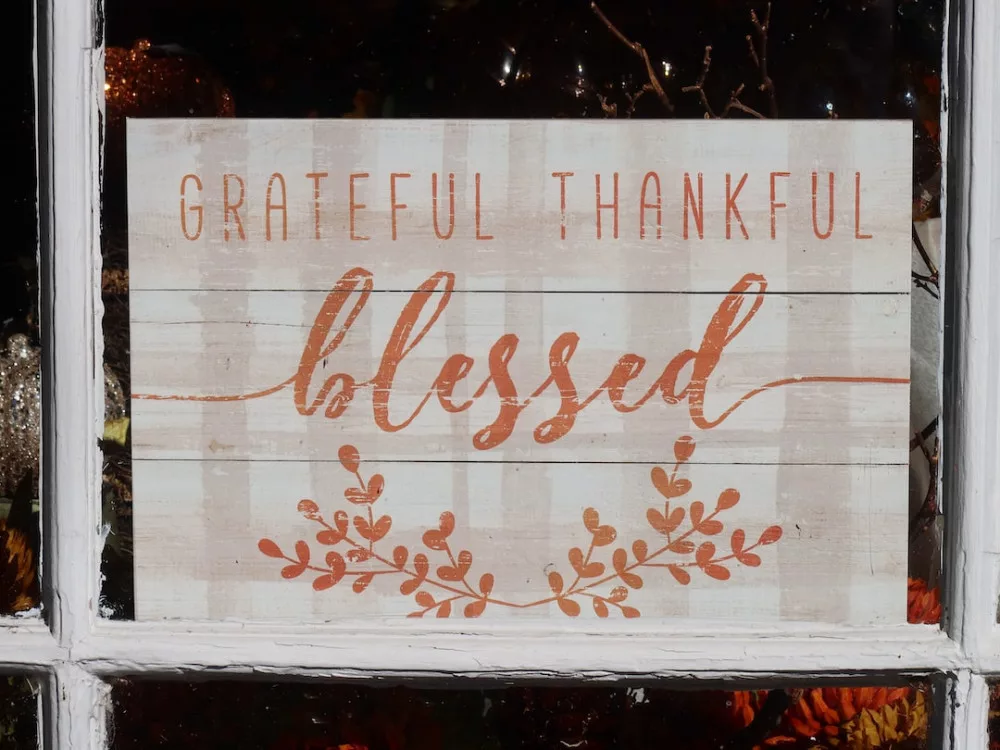
Are there benefits to being thankful?
In positive psychology research, there is a consistent correlation between gratitude and heightened happiness.
There have been numerous research studies about the benefits of a grateful lifestyle, and the more we learn about it, the more we are stunned by the immense power lying in the simple act of gratitude.
I want to mention a famous study by Dr. Robert A. Emmons of the University of California, Davis, and Dr. Michael E. McCullough of the University of Miami, which is featured on the Harvard University website regarding gratitude research studies. In the study titled “Counting Blessings Versus Burdens: An Experimental Investigation of Gratitude and Subjective Well-Being in Daily Life,” the research team asked participants to write about specific things.
One group wrote about things they were thankful for in the week. Another group wrote about daily annoyances or things that upset them, and the third group wrote about events that had impacted them without focusing on whether they were positive or negative.
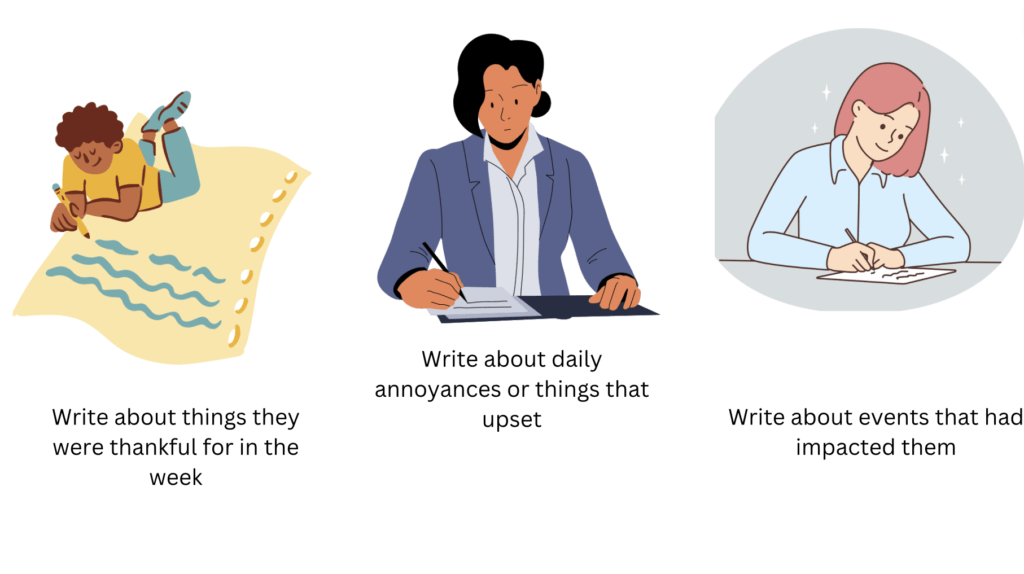
After 10 weeks, individuals who wrote about gratitude showed increased optimism and a better overall sense of well-being. Moreover, they also engaged in more exercise and had fewer visits to physicians compared to those who concentrated on sources of irritation.
An interesting finding from this research is that the things the first group mentioned in their practice to be thankful about were often very simple, such as “waking up this morning,” “the generosity of friends,” “to God for giving me determination,” “for wonderful parents,” “to the Lord for just another day,” and “to the Rolling Stones.” Yet, it made a significant difference in their lives, both physically and mentally.
How to be thankful for what you have
Avoid comparison
“Comparison is the thief of joy” – Theodore Roosevelt
According to some studies, as much as 10 percent of our thoughts involve comparisons of some kind, and for some, the percentage is even higher. Research has shown that people who regularly compare themselves to others may find motivation to improve. But, on the flip side, they might also end up feeling seriously bummed out, guilty, regretful, and might even get into lying about themselves or even eating disorder.
Why comparison is bad for you?
Comparison, at a certain level, is good for you as it can create motivation for progress. However, when taken to an extreme level, it can cause more harm than good. A common tendency in humans is that we often compare ourselves to the highest standards we know. For example, many people believe they have a less active social life than others. But when making such comparisons, people tend to compare themselves only to the most social people they know. So, we always have certain biases when we compare ourselves, and it obviously makes us feel like we are never good enough.
Don’t overlook your blessings
When it comes to being grateful, the first thing to keep in mind is to avoid comparing yourself to others.
When we constantly compare ourselves to others, we tend to overlook our own blessings and achievements, which can diminish our sense of gratitude. Instead, it’s important to focus on our own journey and acknowledge the unique blessings that exist in our lives.
For example, let’s say you have a friend who recently purchased a brand-new car. It’s natural to feel a twinge of envy or desire for something similar. However, rather than dwelling on what you don’t have, take a moment to reflect on the things you do have.
Consider the reliable and well-maintained car you currently own, the memories associated with it, and the fact that it serves its purpose of transportation.

Remember, everyone’s journey is unique, and we each have our own set of blessings and opportunities. Embrace your own journey, celebrate your unique blessings, and you will find that happiness is actually within your hands.
So seriously, just stop comparison and start to appreciate every single thing about you!
Practice gratitude daily
Practicing gratitude daily doesn’t have to be a lengthy meditation session or consume a lot of time of yours. It’s the small habits , small changes that will bring out big changes in your life.
You can start today by simply listing out three things you’re grateful for in your life. It can be done in your head or written down on paper. Just the act of acknowledging and appreciating these things can make a significant difference.
For instance, if you woke up today feeling healthy, that’s already a reason to be grateful. Just like in the study I mentioned above, the things that the participants mentioned they were thankful for were often very simple, such as “waking up this morning,” “the generosity of friends,” “to God for giving me determination,” “for wonderful parents,” “to the Lord for just another day,” and “to the Rolling Stones.”

Engaging in small activities like listing things to be grateful for at the beginning of your day or taking a few seconds to truly appreciate an act of kindness from someone, or even savoring the taste of your morning coffee, can actually bring more light into your life and attract more good things naturally.
As you get the hang of it and start feeling the amazing benefits of practicing gratitude, you can level up and try out some more advanced stuff like keeping a gratitude journal or doing gratitude meditation.
However, it’s perfectly fine to start small and take steps towards a gratitude lifestyle every day.
You can check out my 30 days gratitude challenges here.
Remember, it’s the consistency that matters, not the magnitude.

Thank someone mentally
If gratitude journals feel like too much work for you (although I really encourage you to try it out), the simple thing you can do is just thank somebody in your head. You just need to think about someone who has done something nice for you and send thanks to that person.
Simply thanking someone mentally is enough to produce dopamine and serotonin, which are known as the “feel-good” neurotransmitters. Those hormones help stabilize mood and contribute to an overall sense of contentment.
Give back to others
Giving back to others through acts of kindness and generosity is not only a way to make a positive impact on their lives but also a powerful practice in learning how to be thankful for what you have.
When you get involved in giving, whether you’re offering your time, resources, or skills to help those in need, it’s not just about making a difference in their lives. It’s also about experiencing an incredible feeling of fulfillment and appreciation for what you have.
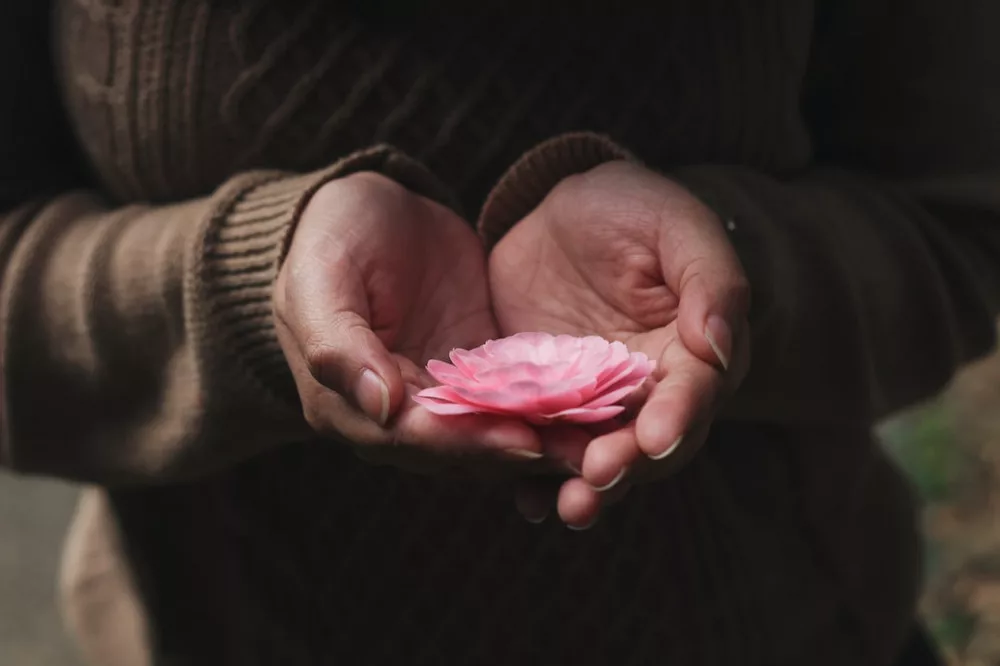
By sharing what you have with others who are less fortunate, you will simply be aware more about all the blessings and abundance in your own life.
When you share with others, it’s a powerful reminder of how lucky you are and all the great things you have going on in your life. It’s a humbling experience that makes you appreciate what you’ve got and the positive difference you can make by being generous.
Studies have found that acts of kindness are linked to increased feelings of well-being; they can even boost your self-esteem. It wouldn’t be an exaggeration to say that “The more you do for others, the more you do for yourself.”
It is no doubt that an act of kindness can elevate our mood and make us feel happier. However, does an act of kindness have any impact on our physical health? In relation to this topic, I would like to highlight a study named “Effect of volunteering on risk factors for cardiovascular disease in adolescents: a randomized controlled trial,” which looked at the physical effects of engaging in voluntary work benefiting both the helper and the helped.
In this study, researchers instructed 52 high school students in Canada to volunteer once a week, while a control group of 54 students did not engage in volunteer work over the same period. The researchers then collected blood samples from both groups and measured their body mass index before and after the study. At the conclusion of the study, it became evident that students actively participating in volunteer work exhibited more significant reductions in all cardiovascular disease-associated biomarkers compared to their counterparts in the control group. Additionally, the volunteering group also experienced greater weight loss.
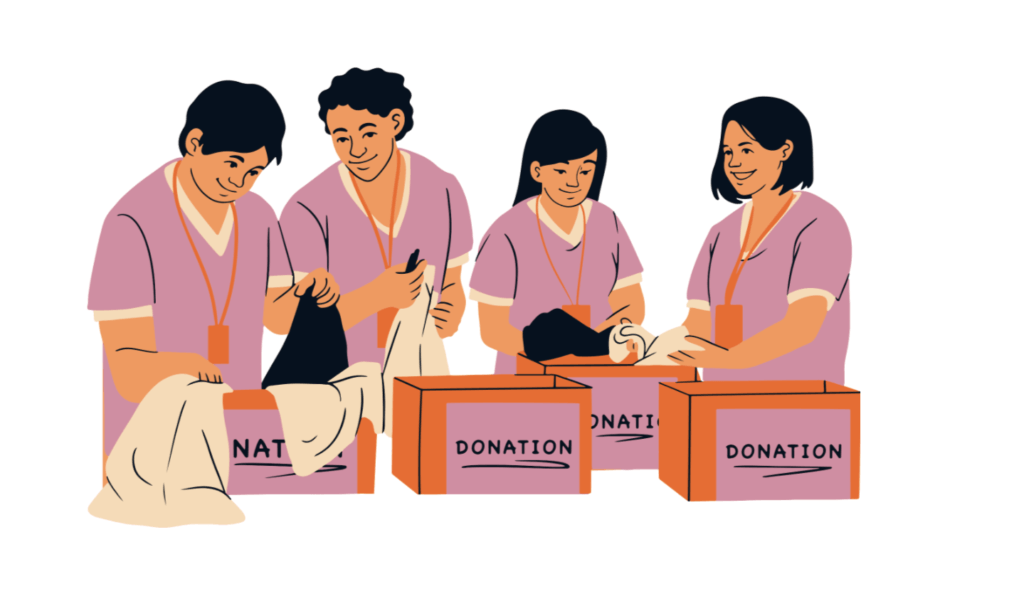
Acts of kindness can come in various forms. It could be volunteering at a local charity, helping a neighbor in need, donating to a worthy cause, or even offering a listening ear and support to someone going through a difficult time.
The important thing is to genuinely extend yourself to others and make a positive difference in their lives.
Practice mindfulness
Cultivating mindfulness is another essential practice in learning how to be thankful for what you have.
By being present in the moment, you become aware of the small details and subtle beauty that often go unnoticed.
You may start to notice the vibrant colors of nature, the warmth of the sun on your skin, or the soothing sound of raindrops. When you are eating, you are not just consuming food to fill your stomach; you truly are present in the moment, experiencing the taste of your food, how the flavors blend well inside your mouth, and focusing 100% of your mind on the meal.
These simple moments become opportunities for gratitude as you recognize the abundance of experiences and sensations that surround you.
You can also practice mindfulness by spending time watching a piece of nature. It could be a small plant on your desk, a flower, or even a rock. Pay attention to the details of that piece, notice how nature cultivates everything so perfectly. The simple act of observing a piece of nature can also bring a great sense of peace inside of you.
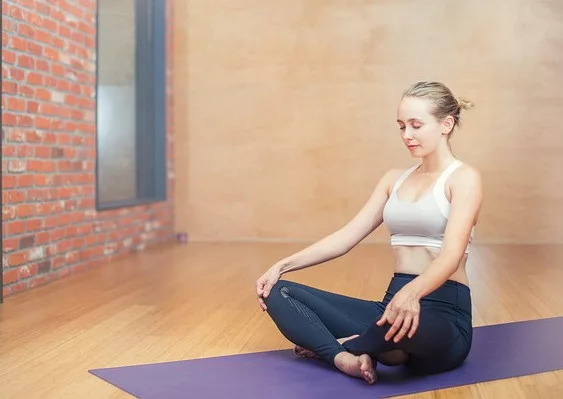
To cultivate mindfulness, you can incorporate simple practices into your daily routine. It can be as effortless as taking a few deep breaths and grounding yourself in the present moment, or setting aside a few minutes each day for meditation or reflection.
The key is to bring your awareness to the present, consciously observe your surroundings and experiences, and intentionally appreciate the blessings that exist in your life.
Shift your perspective
If you were to ask me what the number one thing is when it comes to how to be thankful for what you have, I would say it all lies in your perspective.
Yes, it’s truly amazing how a simple shift in perspective can completely transform the way you view your life.
Instead of constantly focusing on what you lack or what you wish you had, try redirecting your attention to the things you already have. Take a moment to reflect on the blessings, big or small, that are present in your life right now.
By shifting your perspective from scarcity to abundance, you open yourself up to a world of gratitude and contentment.
The next time you catch yourself dwelling on what you lack, pause for a moment and consciously shift your focus to the things you already possess. It may be a simple change, but it has the power to bring immense gratitude and joy into your life.
This is a worth watching video that illustrates how our perspective in life shapes our experiences
“The circumstances of our lives may matter less than how we see them” Rory Sutherland
Final words
I’m sure there are more ways to talk about how to be thankful for what you have. The strategies I have shared in this post have personally had a profound impact on my own journey towards embracing gratitude. However, the beauty lies in the fact that gratitude is a deeply personal and individual experience, and what works for one person may not resonate with another.
I encourage you to explore and discover your own unique path towards gratitude. Experiment with different practices and techniques that resonate with you. I would love to hear about your opinion and experiences in the comment.



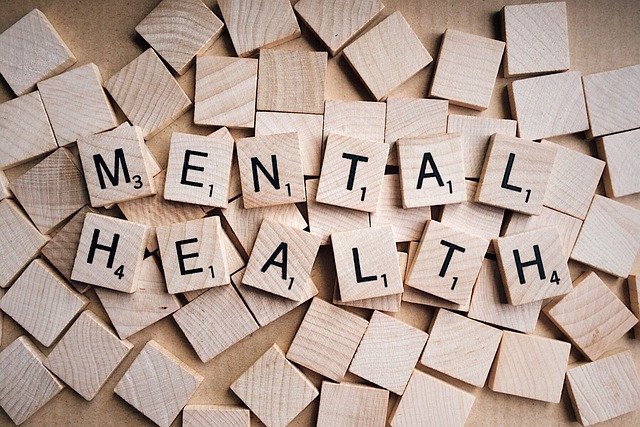
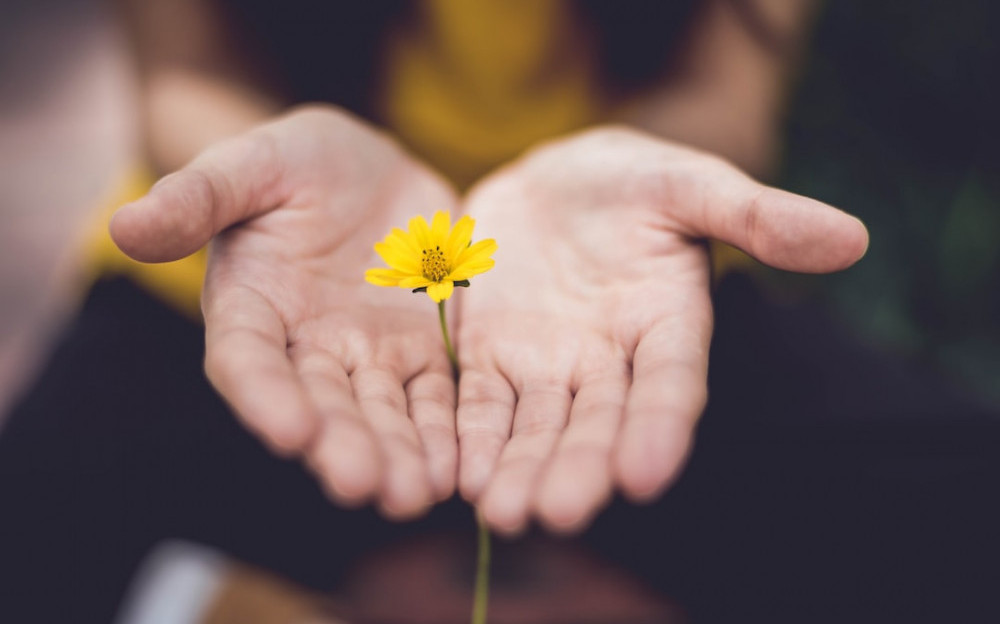

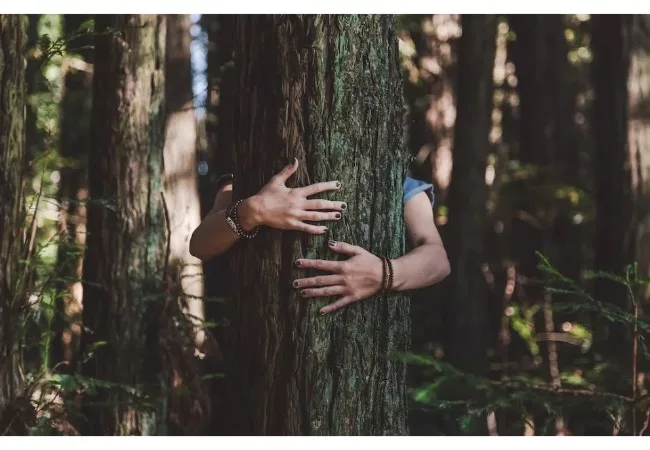
What a beautiful and insightful blog post, Lily! Your words truly resonate with me and remind me of the importance of practicing gratitude in our lives. It’s incredible how easily we can fall into the trap of comparison and overlook the blessings we already have.
The idea of avoiding comparison is so crucial. It’s natural to feel a twinge of envy when we see others with something we desire, but as you mentioned, shifting our focus to our own journey and acknowledging our unique blessings can bring a sense of contentment and appreciation. It’s a powerful reminder that happiness is within our hands and not dependent on external possessions.
Practicing gratitude daily is such a simple yet transformative habit. I love your suggestion of listing three things we’re grateful for each day. It helps us recognize the abundance in our lives, even in the seemingly small things like waking up healthy. And engaging in small activities like appreciating acts of kindness or savoring the taste of our morning coffee can truly bring more light and positivity into our lives.
Giving back to others is a beautiful way to cultivate gratitude. It not only makes a positive impact on their lives but also helps us realize the blessings and abundance we have. Sharing with others is a humbling experience that fosters a deep appreciation for what we possess and the difference we can make by being generous. Acts of kindness can come in various forms, and they all contribute to creating a more compassionate and grateful world.
Mindfulness is another practice that resonates with me. Being present in the moment allows us to notice the small details and find gratitude in the beauty that often goes unnoticed. Cultivating mindfulness through practices like meditation or reflection helps us intentionally appreciate the blessings that surround us.
Finally, shifting our perspective from scarcity to abundance is truly transformative. Focusing on what we lack can create a cycle of dissatisfaction, but by redirecting our attention to what we already have, we open ourselves up to gratitude and contentment. It’s a simple but powerful shift that can bring immense joy into our lives.
Thank you for sharing these valuable insights, Lily. Your strategies and techniques for embracing gratitude are truly inspiring. I’m excited to explore and experiment with them in my own life. I would love to hear from others about their experiences and opinions on practicing gratitude. How has gratitude positively influenced your life? What strategies do you find most effective in cultivating a gratitude mindset? Let’s continue this discussion and learn from each other’s unique perspectives and experiences.
Warm Regards
M.T. Wolf
Thank you for sharing your thoughts on the topic. These are very valuable insights of yours.
In my own personal experience, mindfulness is the practice that has the greatest impact on my life. Mindfulness teaches me to truly live in the moment and enjoy the little things in life. And to my surprise, those things do make me happy. It teaches me the lesson that happiness is really just the way we see the world.
Thank you for such a well-written and insightful blog post, Lily.
Your approach to fostering a gratitude mindset is both practical and meaningful. I particularly appreciate your emphasis on the importance of avoiding comparison, practicing mindfulness, and shifting our perspective. These practices truly have the power to transform our overall outlook on life and our sense of fulfillment.
I have found that starting my day by listing three things I’m grateful for has brought a positive shift in my attitude and mindset. It’s amazing how such a small action can bring about such a large change in perception. Also, giving back to others has indeed reinforced my sense of gratitude and satisfaction, as it offers a unique perspective on the blessings and abundance I have in my own life.
The suggestion to practice mindfulness also resonated with me, as it aligns with my own efforts to appreciate the present moment and the small joys it holds. It’s indeed these simple moments of awareness that can bring profound joy and gratitude.
Your emphasis on shifting one’s perspective from scarcity to abundance is such a critical point. It’s a reminder to appreciate what we already have instead of focusing on what we lack or wish for.
Thank you for sharing your wisdom and encouraging your readers to cultivate gratitude in their lives. I am excited to implement more of these practices in my own life, and I am certain that many others will benefit from your advice as well.
It’s readers like you who make writing so fulfilling.
I have no doubt that you will continue to embrace and benefit from these practices in your life.
Wishing you an abundance of joy, gratitude, and fulfillment as you continue your gratitude journey.
Thank you again for being a part of this wonderful community of growth and positivity.
Hi Lily,
If everyone had this mindset the world would be a much better place.
And that is what it is, setting our mind on the blessings that we already have. As an example, I have had my car for quite some time, and I regard it as a trusty friend. I don’t envy those who get a new car every few years, because I have come to appreciate and rely on mine
Giving back to those around us is also important. Try to make the other person happy instead of always having things your way.
It is a daily act of gratitude. “In everything give thanks!” It depends on our perspective, as the old adage – is the glass half empty or half full.
Thank you so much for your thoughtful comment!
I couldn’t agree more – if everyone adopted this mindset, the world would indeed be a much better place.
Gratitude is a powerful practice that has the potential to transform our lives and the lives of those around us.
Thank you for sharing your insights and reminding us all to embrace gratitude and kindness in our lives.